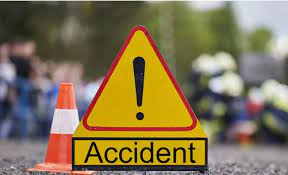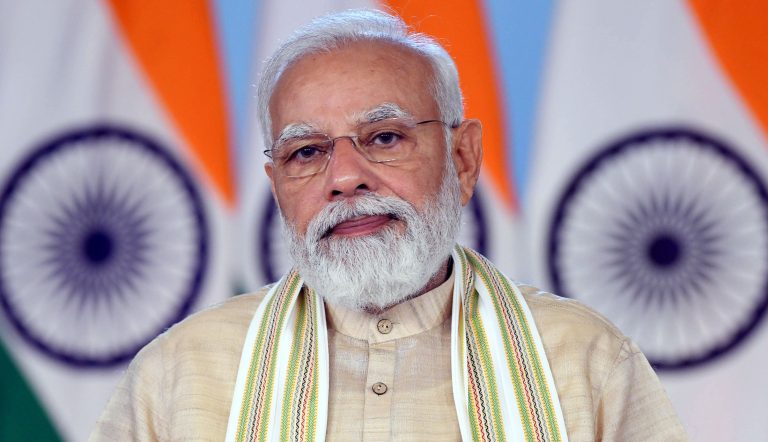SOURCE: AL JAZEERA NEWS
COVID-19 pandemic is testing world’s leaders. Who’s stepping up?
In just three months, more than a million people in 180 countries have fallen sick from the viral illness, while at least 50,000 have died in a public health emergency the United Nations is calling the world’s “most challenging crisis” since World War II.
In large swathes of the globe, lockdowns aimed at stemming the virus’s spread have brought life and economic activity to a virtual standstill. In the worst-hit regions, hospitals are overwhelmed with the sick and dying, while the poor and vulnerable in many societies are facing severe food shortages and starvation.
Highlighting the risk this poses to peace and stability in the world, the United Nations Secretary-General Antonio Guterres issued an urgent appeal for action on Tuesday, calling on leaders to “forget political games” and come together for a “strong and effective response”.
“The world is facing an unprecedented test. And this is the moment of truth,” he said.
Indeed, the stakes could not be higher.
Whether millions live or die depends on the decisions the world’s leaders take in the coming days and weeks. But the early signs are worrying, say analysts.
In some countries, responses from heads of governments have been marked by dithering and denial, driven by personal interests, distrust of science or fears of wreaking economic havoc.
“It’s been disappointing in many countries – too many,” said John M Barry, a historian who studied the Spanish flu pandemic that killed as many as 100 million people in 1918. “In some countries, it’s been outright reprehensible – some leaders’ actions will unnecessarily kill many of their citizens.”
In Xi Jinping’s China, where the illness was first detected in late December, authorities are accused of engaging in a cover-up and punishing doctors who sounded the alarm in the early days of the outbreak – moves critics say allowed the virus to spread out of the central city of Wuhan to every corner of the globe.
In the United States, President Donald Trump initially downplayed the severity of the threat, predicting the virus would “disappear” like “a miracle” one day, and dismissing growing concerns over the disease as a “hoax” by his political rivals. He only changed tack last week after polling showed an increasingly worried public and after modelling predicted that 200,000 people could die in the US without drastic containment efforts.
In Brazil, President Jair Bolsonaro continues to dismiss the illness as a “fantasy” and a “little flu”. Just last week, he defied the advice of his own health officials on avoiding social contact by touring the streets of the capital, Brasilia, in a campaign to get his countrymen back to work.
Mexico’s leader, President Andres Manuel Lopez Obrador, meanwhile, held political rallies late into March, kissing his supporters and urging Mexicans to “live life as normal”. That came even as his health minister urged citizens to stay home to contain the virus.
Charles Call at the Washington DC-based Brookings Institution said both leaders’ approach is marked by “an aversion to scientific inquiry and state institutions”. Their cavalier attitudes are attracting widespread domestic criticism, he wrote in a blog post, predicting the crisis will pose a “test for populism” in the two countries.
In Indonesia, President Joko Widodo admitted last week to deliberately withholding information on the outbreak; a strategy he said had been used to prevent panic. In the early days of the epidemic, some of his ministers said prayer would keep the disease away, while others said the country’s warmer weather would slow the virus’s spread.
Writing in The Diplomat, Asmiati Malik, assistant professor at the Universitas Bakrie in Indonesia, said the government’s “unscientific” approach was based on concerns over the economy in the world’s fourth-most populous country. But engaging in the politics of denial and limiting the public’s access to information on the virus’s spread could “cost thousands of lives”, she wrote.
The denial and delays will cost these countries if and when tougher restrictions are required to stem the epidemic, says Barry, the historian. “If you expect public compliance with calls for social distancing, the public has to believe in them. If they don’t trust those who advocate them, they won’t, and compliance will not be as good and they will be less effective.”
That is why the single most important lesson from the 1918 pandemic is “to tell the truth”, he says.
There are some leaders who have done that.
On March 11, as infections began to spike in Italy, Germany’s Chancellor Angela Merkel said some 70 percent of her country’s population would contract the virus – a sober warning that stood in stark contrast to pronouncements from other world leaders at the time. A week later, the chancellor appealed to Germans in a dramatic television address to respect tough restrictions on movement and social contact.
“The situation is serious; take it seriously,” she said. In a democracy, such curbs “should not be enacted lightly – and only ever temporarily. But at the moment they are essential in order to save lives.”
Germany has since led the way in Europe with large scale testing for COVID-19, conducting nearly a million tests since the start of the crisis. And although the country now ranks fifth among territories with confirmed cases, recording more than 80,000 infections, it has a much lower fatality rate than most.
Praising Merkel, Judy Dempsey of Carnegie Europe said the chancellor’s approach “points the way forward to the unified, decisive response that is necessary and how democracies can best deliver it”.
In Singapore, Prime Minister Lee Hsien Loong is also winning plaudits for an aggressive testing and tracing campaign that has kept the number of infections in the country low – about 1,000 cases since the beginning of the outbreak. In an interview with CNN on Sunday, Lee said transparency and trust were key to his country’s battle against the virus.
“We are transparent – if there is bad news, we tell you. If there are things which need to be done, we also tell you,” he said. “I think that you have to maintain that trust because if people do not trust you, even if you have the right measures, it is going to be very hard to get them implemented.”
South Korea’s President Moon Jae-in and New Zealand’s Prime Minister Jacinda Ardern are also receiving praise for decisive and transparent action.
Then, there are those leaders who rights groups are accusing of using the crisis to push through emergency regulations and amass power to stifle dissent.
Hungary’s Prime Minister Viktor Orban on Monday secured the indefinite right to rule by executive decree. The new law also imposes jail terms of five years on those who spread “false information” – a move critics say could be used to muzzle journalists. Similar concerns are being raised in the Philippines, where President Rodrigo Duterte obtained emergency powers that grant him the authority to silence false information about the coronavirus.
In Israel, Prime Minister Benjamin Netanyahu is using a state of emergency over the pandemic to authorise intelligence services to use phone-surveillance technology on the public and to close down the country’s courts ahead of his trial on corruption charges.
“We recognise that this pandemic is posing an unprecedented test for world leaders,” says Meenakshi Ganguly, South Asia director at Human Rights Watch. “Our problem is that some leaders have adopted authoritarian approaches in combating the crisis. This is not the time for politics… any emergency powers must be proportionate, and states must always protect people’s rights.”
In addition to worrying about covert power grabs, observers are also concerned by fighting between world powers, particularly between the US and China. Officials in Beijing, angered by Washington’s insistence on labelling the coronavirus the “Chinese virus”, are now engaged in a propaganda offensive, with some claiming – without evidence – that it was the US military that brought the virus to Wuhan.
The deteriorating US-China ties – as well Washington’s retreat from the world stage under Trump’s “America First” policy – are jeopardising a coordinated response to the pandemic.
“There isn’t a global response. And it’s a huge problem in the sense that this a crisis that is much better handled if key countries came together,” said Charles Kupchan of the US-based Council on Foreign Relations.
“We’ve been living in a world where the US had become the leader of the posse. Whether the Ebola crisis of 2014 or the financial crisis of 2008, the US was a country that stepped up and said ‘How are we going to manage this together?’ But those days are over. The Trump administration has been extremely slow at responding to crisis at home, and its leadership abroad has been minimal.”
This could be disastrous for the world’s most vulnerable, Kupchan said.
“Core issues that need addressing include procurement and distribution of medical equipment, sharing of best practices on testing and isolation, and dealing with lower-income communities,” he said. “I fear the worst if this virus hits refugee camps and countries with less-developed healthcare systems. It could be quite devastating.”






